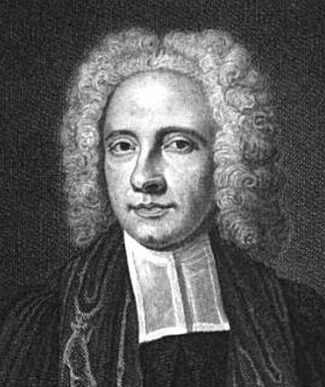podcast 242 – Dr. Beau Branson on the Monarchy of the Father – Part 4
A summary of Dr. Branson’s case and an argument against biblical unitarian theology.
A summary of Dr. Branson’s case and an argument against biblical unitarian theology.
Was 381 the dawn of imperially enforced confession of a triune God?
Is the first Catholic conciliar statement about a tripersonal God in the late 9th c.?
Can one be a trinitarian without believing in a tripersonal God?
Does a doctrine of divine processions entail that the Son is less divine than the Father?
A new paper on when and how the biggest change in the history of mainstream Christian theology occurred.
A blogger mocks the UCA as “the Unitarian Confusion Alliance.” But on what basis?
Most Orthodox theologians agree with Catholics and most Protestants that the one God is the Trinity.
Is E.J. Lowe’s four-category ontology the key to solving the multiple-natures and multiple-modes problems?
Is “monarchical trinitarianism” theologically viable?
What does “monarchical trinitarianism” include exactly?
From a few months back, a very interesting post on Isaac Newton by Brandon, over at Siris. Newton’s is a part of a big, long, interesting and interlocking set of stories about subordinationists, “Arians”, and “Unitarians” in late 17th and early 18th century England. A good place to start is in chapter 29 & 30 of Wilbur’s 1925 book Our Unitarian Heritage, though his interests… Read More »Linkage: Isaac Newton on the Father and Son
In the New Testament “God” is nearly always the Father. But what follows from that, exactly?
Is it true that most ancients lacked the concept of numerical identity?
 The Clarke-Waterland duel went on for many, many pages in several books, getting increasingly snippy.
The Clarke-Waterland duel went on for many, many pages in several books, getting increasingly snippy.
Last time I said that I thought Waterland was a social-mysterian-trinitarian. But I’m not so sure about the “social” part! He’s very unclear on whether the “Persons” are selves. They’re different somethings, in any case. But in this series, I’m sticking to an exegetical issue.
Here are excerpts of Waterland’s second salvo about the “only God” texts.
[Clarke] had produced John 17:3, 1 Cor. 8:6, Eph. 4:6, which prove that the Father is styled, sometimes, the one God, or only true God; and that he is the God of the Jews, of Abraham, etc. I asked how those texts proved that the Son was not? You say… “very plainly… Can the Son of the God of Abraham (Acts 3:13) be himself that God of Abraham, who glorified his Son?” But why must you here talk of that God, as if it were in opposition to this God, supposing two Gods; that is, supposing the thing is question. …I tell you that this divine Person is not that divine Person, and yet both are one God… (A Second Vindication of Christ’s Divinity in Waterland’s Vindications of Christ’s Divinity, 422-3, original italics, bold added, punctuation slightly modernized)
This is wheel-spinning. Clarke does, and Waterland does not take the passages in question to identity (assert to be numerically identical) the Father and Yahweh.
Clarke had asked whether Waterland thought that the term “Father” in these texts actually includes, i.e. refers to, the Son as well. Waterland clarifies,Read More »DANIEL WATERLAND ON “THE FATHER IS THE ONLY GOD” TEXTS – PART 2

Daniel Waterland (1683-1740) was by all accounts the most important disputant of Samuel Clarke about the Trinity.
Waterland spent his career at Cambridge, where he rose through the ranks, eventually becoming Vice-Chancellor, and also serving as a Chaplain to the King, and as an Anglican clergyman in a number of cities.
He had a good reputation, and was an energetic, but normally cool-headed controversial/polemical writer (aganist Clarke, and other other theological topics, against other respected men), and he gained somewhat of a reputation in Anglican circles as a defender of catholic orthodoxy.
Many, including himself, contemplating his becoming a bishop, but in 1740 he died after complications, seemingly, from surgeries on an ingrown toenail in one of his big toes! He was survived by his wife of 21 years. (His only children were his books.)
I’d describe Waterland’s views on the Trinity as social, with a liberal dose of negative mysterianism. Like Clarke, he insists that his is the ancient catholic view, and much of the dispute concerns pre-Nicene fathers. Like Clarke, he wants to stick to those fathers and to the Bible, and takes a dim view of medieval theology.
About the pre-Nicene catholic “fathers,” I’d say both Clarke and Waterland somewhat bend the material to their own ends (I mean, they tend to see those authors as supporting their view, and being perhaps more uniform than they were), but I think Waterland bends the materials more. In his view, catholics had always believed the Three to be “consubstantial” in a generic sense, yet which, somehow, together with their differences of origin, makes them but one god. Like Swinburne and Clarke, he agrees that the Father is uniquely the “font of divinity.” He continually hammers Clarke with the claim that there’s no middle ground between the one Creator and all creatures.
In this series, I’ll examine the way he deals with some favorite unitarian proof-texts, which, unitarians think plainly assert the numerical identity of the Father with the one true God, Yahweh. According to Waterland, these unitarians are making a mistake like the one I made.
You [i.e. Clarke] next cite John 17:3, 1 Cor. 8:6, Eph. 4:6, to prove, that the Father is sometimes styled the only true God; which is all that they prove. Read More »Daniel Waterland on “The Father is the only God” texts – Part 1
Four authors summarize their views on the Trinity.
Biblical unitarianism vs. what Dale calls one-self trinitarianism.
Weighing incompatible definitions of trinitarian theology and unitarian theology.